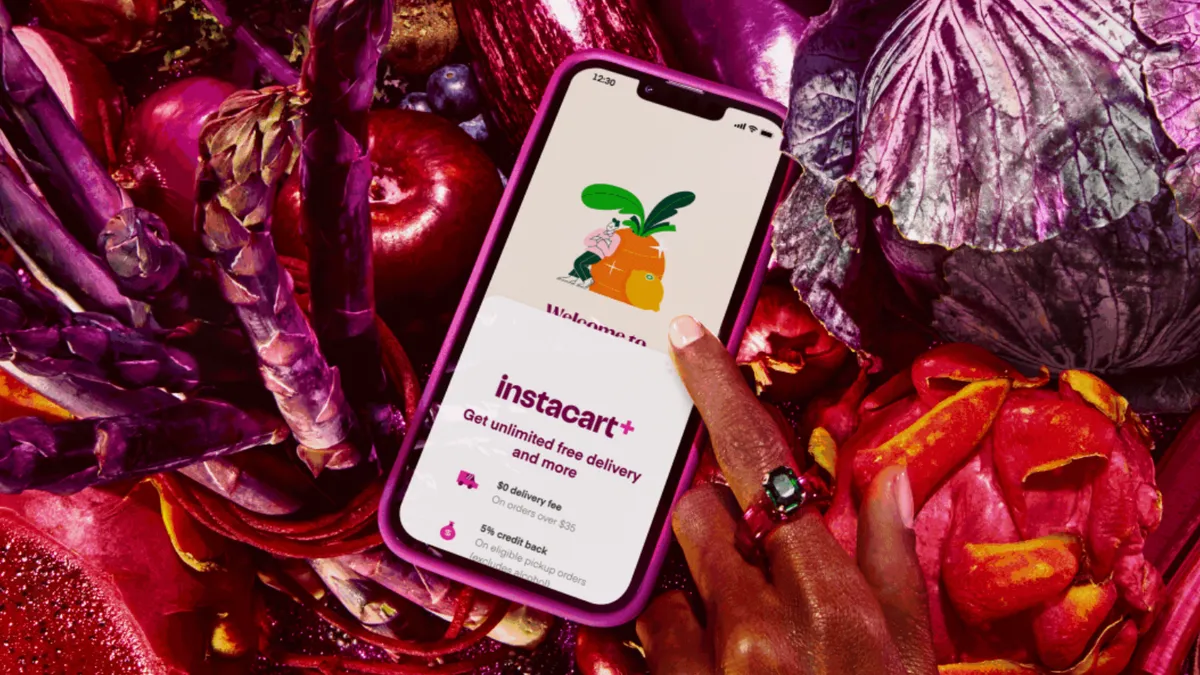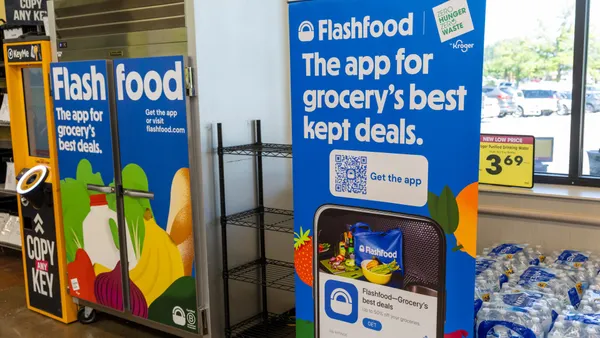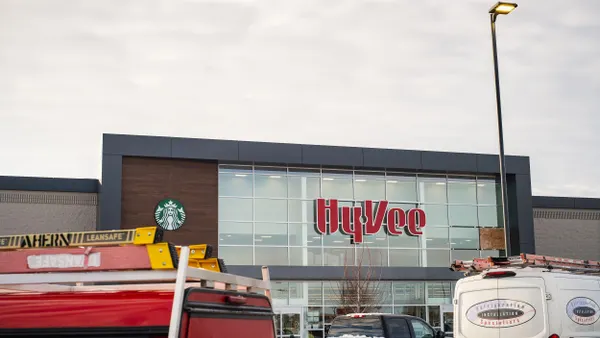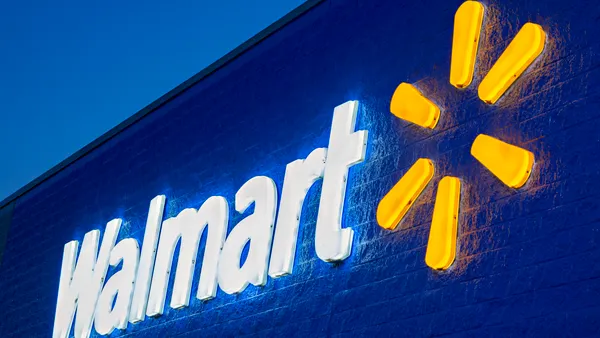Dive Brief:
- Instacart announced Wednesday a new public-private partnership with the U.S. Department of Health and Human Services (HHS) that aims to find opportunities to support food-as-medicine programs, research, outreach and policy priorities that improve health outcomes and health equity.
- On Monday, the grocery technology company unveiled research partnerships with a college and four universities studying food-as-medicine interventions on health outcomes and costs for different population groups.
- As the new year kicks off, Instacart is amping up its focus on food-as-medicine following the rollout of several digital solutions last year to link grocery e-commerce to health and hunger initiatives.
Dive Insight:
Following the launch of Instacart Health in September 2022, Instacart has worked to expand access to nutritious food and improve health outcomes.
The HHS and Instacart partnership, which was announced at the inaugural HHS Food is Medicine Summit on Wednesday, will focus on four pillars, according to a press release:
- Advancing and leveraging food as medicine research design and findings to produce evidence on clinical health outcomes, cost effectiveness and optimal program design.
- Identifying food as medicine implementation strategies through policy and public funding frameworks.
- Optimizing communication to educate the public about the value of food as medicine interventions and resources.
- Ensuring food as medicine interventions support diverse individuals and communities, with a focus on health equity.
“One of our shared priorities is to engage the public in understanding food is medicine. We seek to help accelerate interventions, and build strategies to expand successful programs to more eligible Americans. The Biden-Harris Administration is using every lever available to drive new innovations in policy, and deliver durable solutions that improve our health,” HHS Secretary Xavier Becerra said in the announcement.
The partnership is part of HHS’s Food is Medicine initiative, which it launched in response to a congressionally-funded initiative in 2023 directing the HHS Secretary, in consultation with other agencies, to design and implement a federal strategy to reduce nutrition-related chronic diseases and food insecurity to improve health and racial equity across the U.S.
For the academic research partnerships, Instacart is working with researchers from Meharry Medical College, Duke University, Ohio State University, University of Kentucky and University of Pennsylvania to study a range of food-as-medicine interventions. With Meharry Medical College, for example, Instacart will be looking at food access, nutrition security and associated health outcomes for individuals in historically marginalized communities, including families living below the poverty line.
With researchers at the Duke Clinical Research Institute and the Louisiana Public Health Institute, Instacart wants to see how online and in-store grocery shopping compare when it comes to food purchasing patterns, consumption patterns and access to healthy food options among patients at risk for cardiovascular disease.
Four of the five studies are among the 19 projects receiving grant funding through the American Heart Association’s Health Care by Food Initiative, according to Instacart.
Instacart announced earlier this week it now offers online SNAP acceptance with more than 170 retail banners across more than 14,000 stores, which means 96% of SNAP households in the U.S. can use their EBT cards for same-day delivery on Instacart.
Good Measures, a digital nutrition solution provider, announced Wednesday year-one outcomes of its Good Food Prescription program, which combines clinical coaching, personalized recipes and meal planning, and medically tailored grocery delivery via Instacart to address diet-related conditions. Since the program launched in December 2022 with six health plans in multiple states, 68% of participants who received medically tailored groceries have improved or maintained blood pressure, Good Measures said, noting that members with Stage 2 hypertension saw the greatest improvements and that 72% of members also lost or maintained weight.
Last week, Instacart and DispatchHealth, a provider of in-home medical care, announced a tie-up that gives DispatchHealth’s in-home providers the ability to prescribe food interventions through Instacart.
Over the last year, Instacart has rolled out several digital solutions to further food-as-medicine efforts such as giving health providers, health systems and hospitals the ability to scale food-as-medicine programs through virtual storefronts and other tools. The company has also expanded the usage of its Fresh Funds grocery stipend program, including partnering with Columbia, South Carolina and Wellness West, a coalition of Chicago’s health and safety-net institutions.












